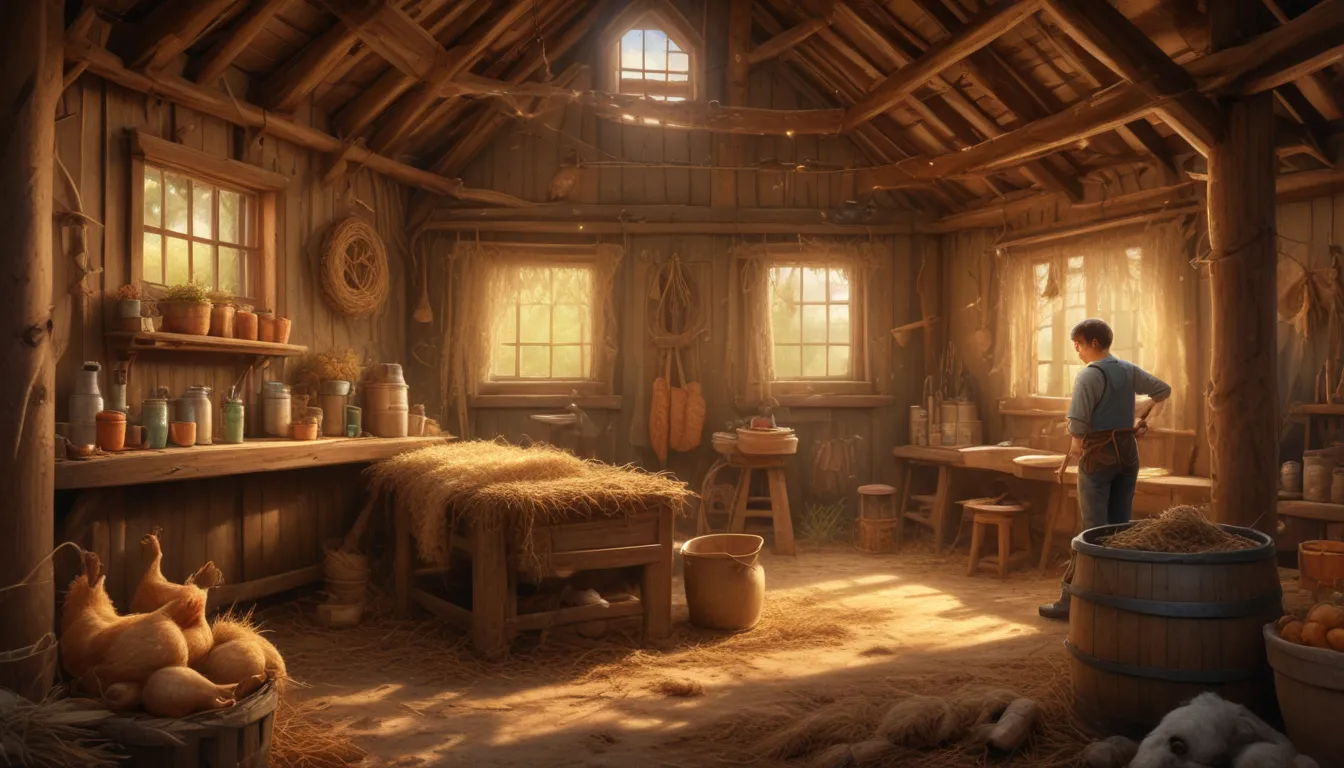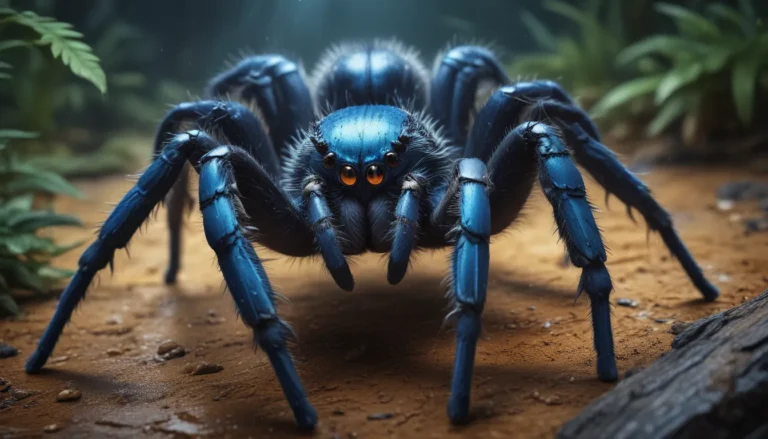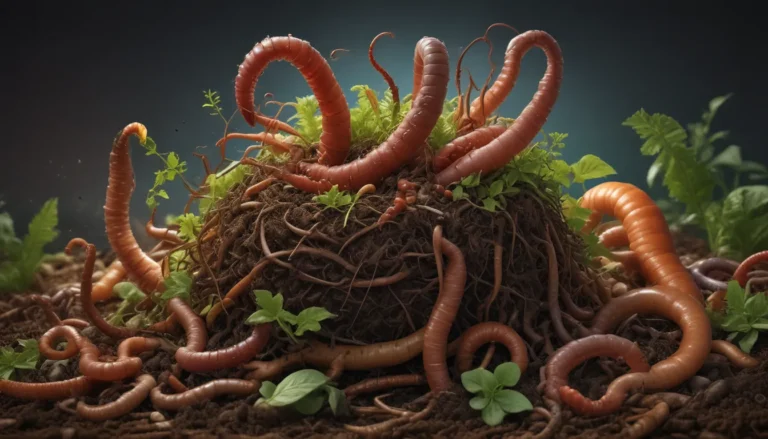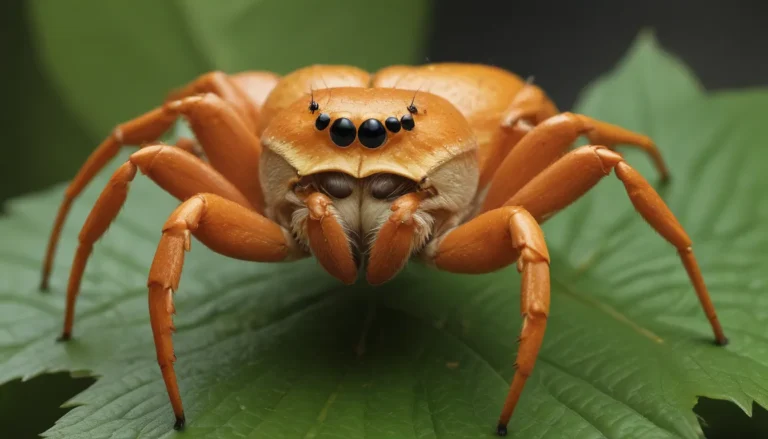The pictures we use in our articles might not show exactly what the words say. We choose these pictures to make you interested in reading more. The pictures work together with the words but don’t take their place. The words still tell you the important facts.
Spiderspotter.com
Welcome to the mesmerizing realm of the Barn Funnel Weaver, scientifically known as Tegenaria domestica. Contrary to popular belief, these spiders are not just creepy crawlers; they are remarkable creatures that contribute significantly to the delicate balance of our ecosystems. Join us on a journey to uncover 13 extraordinary facts about the Barn Funnel Weaver and gain a newfound appreciation for these stealthy inhabitants of our world.
The Enchanting Web of the Barn Funnel Weaver
One of the most distinctive features of the Barn Funnel Weaver is its unique funnel-shaped web. These intricate structures are designed with precision, featuring a narrow entrance that widens into a retreat where the spider patiently awaits its unsuspecting prey. This remarkable web-building ability showcases the spider's adaptability and ingenuity in catching insects efficiently.
Exploring the Habitat of the Barn Funnel Weaver
Barn Funnel Weavers are commonly found in man-made structures such as barns, sheds, and other dark, quiet spaces. These spiders thrive in environments with low human activity, making them well-suited to coexist with us without causing any harm. Their preference for undisturbed areas highlights their elusive nature and exceptional survival tactics.
Unveiling the Size and Appearance of the Barn Funnel Weaver
Measuring between 10mm to 18mm in body length, female Barn Funnel Weavers are medium-sized spiders with a distinctive light-brown or grayish coloration. Their cephalothorax is adorned with dark stripes, adding a touch of elegance to their appearance. Despite their somewhat intimidating look, these spiders pose no threat to humans and are valuable allies in pest control.
The Art of Hunting: A Closer Look at Barn Funnel Weaver’s Techniques
As stealthy hunters, Barn Funnel Weavers rely on their intricate web designs to capture their prey. When an unsuspecting insect wanders into their web, these spiders swiftly emerge from their retreat, delivering a paralyzing bite with their venom. This efficient hunting strategy allows them to immobilize their prey before retreating to feast on their catch in the safety of their retreat.
Delving into the Potency of Barn Funnel Weaver’s Venom
While the venom of the Barn Funnel Weaver is not harmful to humans, it plays a vital role in subduing their prey. The enzymes present in their venom break down the tissues of their victims, facilitating the consumption process for the spider. This potent venom showcases the spider's sophisticated adaptation for capturing and consuming their prey effectively.
The Dance of Courtship: Mating and Reproduction of the Barn Funnel Weaver
Males employ intricate vibrations to attract females and initiate the courtship ritual. Once successful, the female lays her eggs within a silken sac, which she diligently guards until they hatch. The young spiderlings then disperse to create their own webs, continuing the cycle of life for the Barn Funnel Weaver.
The Lifespan of the Barn Funnel Weaver: A Brief Insight
With an average lifespan of 1 to 2 years, Barn Funnel Weavers live relatively short but impactful lives. However, under suitable conditions, some individuals may surpass this average lifespan, showcasing the resilience and adaptability of these fascinating spiders.
Unveiling the Defense Mechanisms of the Barn Funnel Weaver
When threatened, Barn Funnel Weavers exhibit a swift retreat into their narrow funnel-shaped retreat. If further provoked, they may resort to vibrating their web, producing a buzzing sound as a warning to potential predators. These defense mechanisms highlight the spider's cautious nature and their instinctual response to danger.
The Nutritional Palette of the Barn Funnel Weaver: Insights into their Diet
Feeding primarily on small insects like flies, mosquitoes, and beetles, Barn Funnel Weavers play a crucial role in controlling pest populations. By preying on these pests, they contribute to the natural balance of ecosystems and reduce the need for chemical interventions, making them invaluable allies in maintaining ecological harmony.
Embracing the Nocturnal Lifestyle of the Barn Funnel Weaver
Preferring the cover of darkness, Barn Funnel Weavers are primarily nocturnal hunters. Their exceptional vision allows them to detect movement and vibrations in their webs with precision, enabling them to efficiently capture their prey under the veil of night. By conserving their energy during the day, these spiders maximize their hunting potential during the night.
A Global Expedition: Geographic Distribution of the Barn Funnel Weaver
Found in regions across North America, Europe, Asia, and Australia, Barn Funnel Weavers have successfully adapted to human environments, making them a common sight in homes and buildings. Their widespread distribution showcases their ability to thrive in diverse habitats, cementing their status as resilient and versatile arachnids.
Harnessing Nature’s Pest Control: The Role of Barn Funnel Weavers in Homes
Despite their daunting appearance, Barn Funnel Weavers serve as beneficial allies in the realm of house cleaning. By consuming insects like flies and mosquitoes, they assist in natural pest control, reducing the presence of unwanted pests in our living spaces. Their contribution to pest management highlights their significance in maintaining a healthy environment for humans.
Guardians of Ecological Balance: The Impact of Barn Funnel Weavers
Barn Funnel Weavers occupy a vital niche in the ecosystem, playing a crucial role in regulating insect populations. By controlling the abundance of pests and contributing to the overall health of the environment, these spiders demonstrate their essential role in preserving ecological balance and sustainability.
In Conclusion: A Tribute to the Barn Funnel Weaver
The Barn Funnel Weaver stands as a testament to nature's intricacy and resilience. Through their remarkable adaptations and unique characteristics, these spiders captivate us with their efficiency and grace. Whether you view them with fear or fascination, their undeniable importance in our ecosystems cannot be overlooked. So, the next time you encounter a Barn Funnel Weaver, take a moment to appreciate the marvels of nature embodied in these extraordinary creatures.
FAQs: Unveiling the Mysteries of the Barn Funnel Weaver
Q: Where can I find Barn Funnel Weavers?
Barn Funnel Weavers are commonly found in grassy areas, fields, and gardens. They also seek refuge in man-made structures such as barns and sheds, where they construct their intricate webs.
Q: Are Barn Funnel Weavers poisonous?
While Barn Funnel Weavers possess venom to immobilize their prey, their bites are generally harmless to humans. However, if you experience any unusual symptoms or have allergies, it's advisable to seek medical attention promptly.
Q: What do Barn Funnel Weavers eat?
Barn Funnel Weavers primarily feed on small insects like flies, mosquitoes, and beetles. Their diet consists of pests that they capture in their funnel-shaped webs, aiding in natural pest control.
Q: Can Barn Funnel Weavers survive indoors?
While Barn Funnel Weavers may occasionally venture indoors, they are better suited to outdoor environments with ample prey availability. Indoor conditions may not provide the necessary resources for their survival and well-being.
Q: How do Barn Funnel Weavers build their webs?
Barn Funnel Weavers construct funnel-shaped webs using silk threads attached to surrounding structures. Positioned at the narrow end of the funnel, they await the entrapment of unsuspecting insects, showcasing their impeccable web-building skills.
Q: Are Barn Funnel Weavers nocturnal?
Yes, Barn Funnel Weavers are primarily active during the night, utilizing their exceptional vision to hunt and capture prey under the cover of darkness. Their nocturnal lifestyle maximizes their hunting efficiency and success rate.
Q: Are Barn Funnel Weavers beneficial to the environment?
Indeed, Barn Funnel Weavers play a crucial role in ecological balance by controlling insect populations. By preying on pests and contributing to natural pest control, they aid in maintaining the health and sustainability of their habitats.
Q: Can Barn Funnel Weavers be kept as pets?
While it is possible to keep Barn Funnel Weavers as pets, it requires careful consideration of their habitat and dietary needs. Consulting with experts is recommended before attempting to keep them as pets to ensure their well-being and proper care.
Q: What are the predators of Barn Funnel Weavers?
Natural predators of Barn Funnel Weavers include birds, frogs, lizards, and other small mammals. These predators target the spiders or their eggs as a food source, highlighting the intricate web of predator-prey relationships in nature.
Q: Do Barn Funnel Weavers have any specific behaviors?
Barn Funnel Weavers exhibit unique behaviors such as retreating into their funnel-shaped retreat when threatened and vibrating their webs as a warning signal. Their intricate behaviors reflect their adaptability and survival instincts in response to external threats.
Q: How do Barn Funnel Weavers contribute to pest management?
Barn Funnel Weavers aid in pest management by consuming insects like flies, mosquitoes, and beetles. Their predation on pests helps in reducing their populations naturally, minimizing the need for chemical interventions and promoting a healthier environment for humans.
Q: What distinguishes Barn Funnel Weavers from other spider species?
The distinctive funnel-shaped webs of Barn Funnel Weavers set them apart from other spider species. Their unique hunting techniques, nocturnal hunting behavior, and role in pest control further distinguish them as remarkable arachnids with essential contributions to the ecosystem.
Q: Why are Barn Funnel Weavers essential for the environment?
Barn Funnel Weavers are essential for the environment due to their role in regulating insect populations. By preying on pests and contributing to natural pest control, they help maintain ecological balance and sustainability in their habitats, making them indispensable allies in preserving the health of ecosystems.
Explore the Marvels of the Barn Funnel Weaver
As we unravel the mysteries of the Barn Funnel Weaver, we discover a world filled with intricate webs, efficient hunters, and silent guardians of our homes. These extraordinary creatures exemplify the beauty and complexity of nature, showcasing their vital role in maintaining ecological harmony. Whether you view them with trepidation or admiration, their significance in the web of life cannot be understated. So, embark on a journey of discovery and appreciation for the remarkable Barn Funnel Weaver, and witness firsthand the wonders of the natural world.






